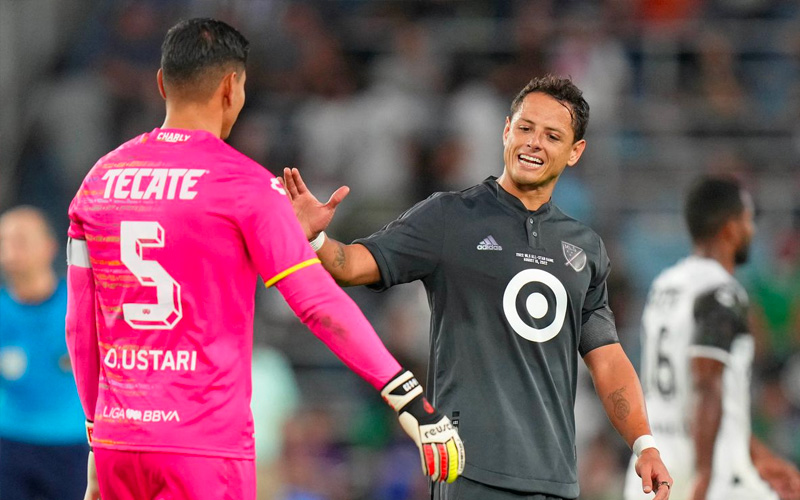The Genesis of the MLS All-Star Game
The MLS All-Star Game began as a showcase event for the league’s best players in 1996, the inaugural season of MLS. The initial format saw the Eastern Conference compete against the Western Conference, as a means to promote the sport, the league, and its most talented players.
In the early years, the MLS All-Star Game followed a traditional format, similar to all-star games in other major American sports like basketball, baseball, and hockey. The event featured an entertaining mix of skill, flair, and competitive spirit, as the players aimed to prove their conference’s superiority.
Format Evolution: MLS All-Stars vs. International Clubs
The MLS All-Star Game format evolved in 2003, when the league’s best players faced Mexican club Chivas de Guadalajara in a thrilling 3-1 victory for the MLS All-Stars. This marked the beginning of a new era for the All-Star Game, as the league began pitting the All-Stars against top-flight international clubs.
Over the years, the MLS All-Stars have faced clubs from across the globe, including the likes of Manchester United, Bayern Munich, and Juventus, among others. This change in format not only created greater exposure for the league, but also allowed MLS players to compete against some of the world’s best footballers.
Growth and Recognition for MLS Players
The All-Star Game has provided a platform for MLS players to showcase their skills on a larger stage, leading to increased recognition and opportunities. Numerous players have used the event as a springboard to earn moves to European leagues, or to establish themselves as key figures for their respective national teams.
For example, Clint Dempsey and Tim Howard, two of the most accomplished American soccer players, both featured in multiple All-Star Games before making successful moves to the English Premier League. This has helped enhance the reputation of MLS as a competitive league capable of producing top talent.
Impact on League Development and Expansion
The MLS All-Star Game has played a crucial role in developing and expanding the league. Each year, the All-Star Game is held in a different city, allowing fans across North America to experience the event firsthand. This has generated excitement and interest in soccer, and has been a key factor in the league’s expansion efforts.
To date, MLS has grown from 10 teams in 1996 to 27 teams in 2021, with plans to expand to over 30 teams by 2024. The All-Star Game has been a vital part of this growth, as the league leverages the event to reach new markets and attract potential investors.
Memorable Moments in MLS All-Star Game History
2014: MLS All-Stars vs. Bayern Munich
The 2014 All-Star Game saw the MLS All-Stars take on German giants Bayern Munich. In a thrilling encounter, the All-Stars managed to pull off a stunning 2-1 victory, with goals from Bradley Wright-Phillips and Landon Donovan. The victory served as a statement of intent, demonstrating the league’s increasing quality and competitiveness.
2010: MLS All-Stars vs. Manchester United
In 2010, the MLS All-Stars faced off against English powerhouse Manchester United. Despite a 5-2 defeat, the game provided a great opportunity for the MLS players to test themselves against one of the world’s best clubs. The match also saw a record attendance for an All-Star Game, with over 70,000 fans attending the event at Reliant Stadium in Houston, Texas.
2006: MLS All-Stars vs. Chelsea
The 2006 All-Star Game featured a historic matchup between the MLS All-Stars and then reigning English Premier League champions Chelsea. The All-Stars secured a memorable 1-0 victory, thanks to a goal from Dwayne De Rosario. This victory marked a significant moment for the league, proving that MLS players could compete with some of the best in the world.
The Role of the MLS All-Star Skills Challenge
In addition to the main event, the MLS All-Star Game includes a Skills Challenge, which sees players from both the All-Star team and the international club participating in a series of skill-based competitions. The Skills Challenge, which was introduced in 2019, has become an integral part of the All-Star festivities, further highlighting the talents of MLS players.
The Skills Challenge typically consists of events such as shooting, passing, and dribbling challenges, as well as crossbar and target challenges. These events not only provide a fun and entertaining spectacle for fans, but also serve to showcase the technical abilities of MLS players.
Challenges and Criticisms
Despite the MLS All-Star Game’s successes and its role in promoting the league, there have been concerns and criticisms leveled against the event. One of the main criticisms is the potential for injuries, as top players are placed in a high-profile, competitive environment during the middle of the season.
Additionally, some argue that the format of playing against international clubs, while exciting and beneficial for exposure, places unnecessary pressure on MLS players. Critics contend that the traditional East vs. West format would provide a more enjoyable, less competitive atmosphere, while still showcasing the league’s talent.
The Future of the MLS All-Star Game
As MLS continues to grow and evolve, so too will the All-Star Game. The event remains a crucial component in the league’s efforts to develop and showcase talent, expand into new markets, and raise the profile of soccer in North America.
It remains to be seen whether the format will change again in the future, or if the league will continue to pit the MLS All-Stars against international clubs. Regardless of the format, the MLS All-Star Game will continue to play a vital role in the ongoing development and promotion of Major League Soccer.

